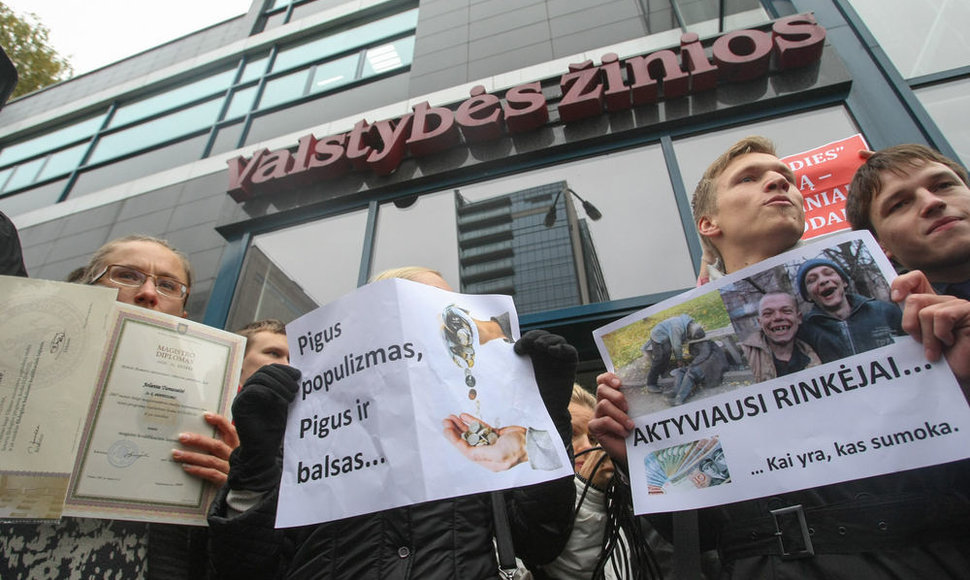"We can say that impunity during earlier elections and the circumstances we have observed in the past led to what we presume is organized buying of votes. We see signs of this becoming a systematic phenomenon," Kubilius told journalists after meeting with leaders of law-enforcement institutions and chairman of the Central Electoral Commission.
Meanwhile, Skvernelis said that the prevention and investigation tools available to the authorities were "toothless."
"We see that the tools at the disposal of the law-enforcement are toothless, to say the least," the police chief said.
Deputy Prosecutor General Darius Raulušaitis, who was present at the meeting, said the authorities could not use the means envisaged in the Law on Operational Activities to fight vote buying, as such types of crimes are listed as a minor offense.
"Speaking about the tools we use to disclose these crimes, the tools we have to investigate them are indeed too few. As these crimes are listed as minor, investigators cannot use the non-public measures envisaged in the Law on Operational Activities or the Code of Criminal Process," the prosecutor said.
Nevertheless, he says, the authorities attempt to take "all other opportunities."
"As to efficiency and viability of the investigations, we would certainly do much better if we had the tools, as well," Raulušaitis said.
Skvernelis, the police chief, emphasized that the so-called risky districts and stations are known before the second round of voting, adding they would be subjected to more attention from the public and criminal police. He refused to specify the districts.
A so-called hotline will also be made available for the public to inform the authorities about violations observed during the vote.
Asked whether the meeting address any party involved in the highest number of violations, Zenonas Vaigauskas, chairman of the Central Electoral Committee, refused to refer to a single political organization.












